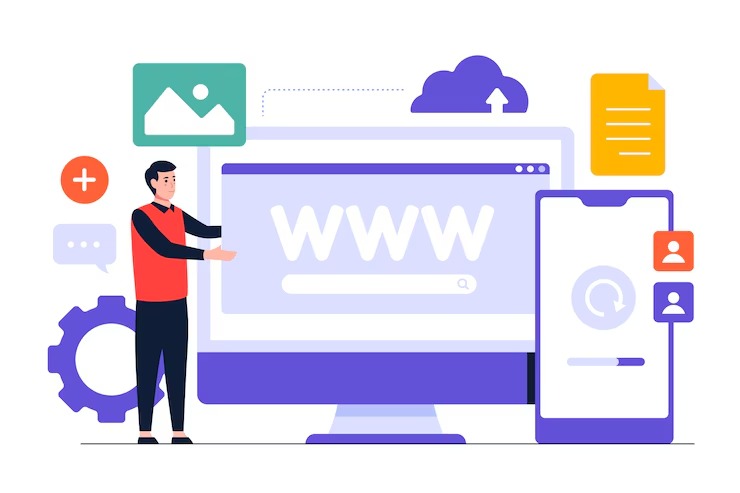WordPress SEO: Ranking Higher in Search Results
Conquer the SERPs: Your 2025 Guide to WordPress SEO Domination
WordPress powers a significant chunk of the web. But having a beautiful WordPress site is only half the battle. If no one can find it, you’re essentially shouting into the void.
Let’s cut through the noise and get straight to practical strategies for achieving WordPress SEO dominance in 2025. This isn’t your grandpa’s SEO advice.
H1: The Foundation: Core WordPress SEO Principles Still Reign Supreme
Some things never go out of style. Despite the algorithm shifts and emerging technologies, these fundamental SEO principles remain critical for WordPress success.
H2: On-Page Optimization: Crafting Content That Google Loves
- Keyword Research is Non-Negotiable: Tools like Semrush, Ahrefs, and even Google Keyword Planner remain indispensable. Focus on long-tail keywords that reflect user intent and have lower competition. Think “best sustainable coffee beans for pour-over” instead of just “coffee beans.”
- Compelling Titles & Meta Descriptions: Your title tag and meta description are your website’s sales pitch on the search engine results page (SERP). Optimize them for click-through rate (CTR) by including your target keyword, a clear value proposition, and a call to action.
- Content is King (But Context is Queen): Create high-quality, informative, and engaging content that answers user queries comprehensively. Go beyond just meeting the word count; provide valuable insights, original data, and actionable advice.
- Header Tags (H1-H6) for Structure & Clarity: Use header tags to break up your content into logical sections, improving readability for both users and search engine crawlers. Each page should have only one H1 tag that includes your primary keyword.
- Image Optimization for Speed & Accessibility: Compress images to reduce file size without sacrificing quality. Use descriptive alt text that includes your target keyword. This improves accessibility and helps Google understand the image’s context.
- Internal Linking: Connect Your Content: Strategically link to other relevant pages on your website. This helps users navigate your site, distributes link juice, and tells Google which pages are most important.
H2: Technical SEO: Ensuring Your Site is Crawlable & Indexable
Technical SEO is the backbone of your SEO efforts. If Google can’t crawl and index your site, your on-page optimization efforts will be largely wasted.
- Mobile-First Indexing: Google prioritizes the mobile version of your website for indexing and ranking. Ensure your WordPress site is fully responsive and provides a seamless experience on all devices. Use Google’s Mobile-Friendly Test to identify and fix any issues.
- Site Speed Optimization: Page load speed is a crucial ranking factor. Use caching plugins, optimize images, leverage a content delivery network (CDN), and choose a fast hosting provider to improve site speed. Google’s PageSpeed Insights provides detailed recommendations.
- XML Sitemap Submission: An XML sitemap tells Google about all the important pages on your website. Generate an XML sitemap using a plugin like Yoast SEO or Rank Math and submit it to Google Search Console.
- Robots.txt Optimization: The robots.txt file tells search engine crawlers which pages they can and cannot access. Ensure you’re not accidentally blocking important pages from being crawled.
- HTTPS Security: A secure website (HTTPS) is essential for user trust and SEO. Obtain an SSL certificate and ensure your entire website is served over HTTPS.
- Structured Data Markup (Schema): Implement structured data markup to provide Google with more information about your content. This can help your website appear in rich snippets, such as review stars, FAQs, and event listings. Use Schema.org vocabulary and Google’s Rich Results Test to validate your markup.
H1: Emerging Trends & Advanced WordPress SEO Strategies for 2025
Staying ahead of the curve requires adapting to the latest trends and leveraging advanced SEO strategies.
H2: The Rise of E-E-A-T (Experience, Expertise, Authoritativeness, Trustworthiness)
Google’s E-E-A-T guidelines are more important than ever. Demonstrate your experience, expertise, authoritativeness, and trustworthiness in your content.
- Showcase Your Expertise: Clearly highlight your qualifications, credentials, and experience in your content. Link to authoritative sources and cite relevant research.
- Build Authority Through Backlinks: Earn high-quality backlinks from reputable websites in your industry. Focus on editorial backlinks from trusted sources.
- Establish Trust Through Transparency: Be transparent about your business, products, and services. Display your contact information, privacy policy, and terms of service clearly.
- Demonstrate Experience: Share personal anecdotes, case studies, and real-world examples to showcase your experience.
H2: Video SEO: Tapping into the Power of Visual Content
Video is becoming increasingly important for SEO. Optimize your videos for search engines to drive more traffic to your website.
- YouTube Optimization: Optimize your YouTube videos with relevant keywords, compelling titles, and detailed descriptions. Include a link to your website in the video description.
- Video Schema Markup: Use video schema markup to help Google understand the content of your videos.
- Embed Videos on Your Website: Embed your YouTube videos on your website to increase engagement and improve dwell time.
H2: AI-Powered SEO Tools: Automating & Enhancing Your Efforts
Artificial intelligence (AI) is transforming the SEO landscape. Leverage AI-powered tools to automate tasks, generate content, and gain insights.
- AI Content Generation: Use AI tools to generate content ideas, outlines, and even full articles. However, remember that human editing and fact-checking are still essential.
- AI-Powered Keyword Research: Utilize AI tools to identify emerging trends and discover untapped keyword opportunities.
- AI-Driven SEO Audits: Run AI-powered SEO audits to identify technical issues and optimization opportunities.
H2: Voice Search Optimization: Catering to the Conversational Searcher
Voice search is becoming increasingly popular. Optimize your content for voice search by focusing on conversational keywords and answering common questions.
- Target Question-Based Keywords: Focus on keywords that are phrased as questions, such as “What is the best way to…” or “How do I…”
- Provide Concise Answers: Answer questions directly and concisely in your content.
- Use Structured Data Markup: Implement FAQ schema markup to help Google understand the questions and answers on your website.
H2: Local SEO: Dominate Your Local Market
If you have a local business, local SEO is crucial for attracting customers.
- Google Business Profile Optimization: Claim and optimize your Google Business Profile (GBP) listing. Include accurate business information, high-quality photos, and customer reviews.
- Local Keyword Targeting: Target local keywords in your content, such as “best pizza in [your city].”
- Citations & Directory Listings: Build citations by listing your business in online directories, such as Yelp and Yellow Pages.
H1: WordPress SEO Plugins: Your Allies in the Fight for Rankings
WordPress offers a plethora of SEO plugins to help you optimize your website. Here are some of the most popular and effective options:
- Yoast SEO: A comprehensive SEO plugin that provides tools for keyword research, on-page optimization, XML sitemap generation, and more.
- Rank Math: Another popular SEO plugin that offers similar features to Yoast SEO, plus advanced features like keyword ranking tracking and content AI.
- All in One SEO Pack: A user-friendly SEO plugin that is easy to set up and use.
- SEOPress: A powerful SEO plugin that offers a wide range of features, including structured data markup, local SEO optimization, and WooCommerce SEO.
- WPRocket: A caching plugin that improves website speed and performance.
H1: FAQ: Answering Your Burning WordPress SEO Questions
Still have questions about WordPress SEO? Here are some frequently asked questions and their answers:
- Q: How long does it take to see results from SEO?
- A: SEO is a long-term strategy. It can take several months to see significant results.
- Q: How often should I update my website’s content?
- A: Regularly updating your website’s content is important for SEO. Aim to update your content at least once a month.
- Q: What is keyword stuffing and why is it bad?
- A: Keyword stuffing is the practice of overusing keywords in your content in an attempt to rank higher in search results. This is a black hat SEO technique that can result in penalties from Google.
- Q: How important are backlinks for SEO?
- A: Backlinks are a crucial ranking factor. High-quality backlinks from reputable websites tell Google that your website is trustworthy and authoritative.
- Q: What is the difference between on-page SEO and off-page SEO?
- A: On-page SEO refers to the optimization of elements within your website, such as content, title tags, and meta descriptions. Off-page SEO refers to the optimization of elements outside of your website, such as backlinks and social media mentions.
H1: How-To: Implement a Basic WordPress SEO Audit in 30 Minutes
Don’t wait, start improving your SEO now! Here’s a quick audit you can perform today.
- Check Your Site Speed: Use Google’s PageSpeed Insights to identify performance bottlenecks. Address the highest-impact recommendations first.
- Review Your Homepage Title Tag & Meta Description: Are they compelling and keyword-rich? Do they accurately represent your business?
- Analyze Your Keyword Usage: Identify your top 3-5 keywords and ensure they are naturally incorporated into your homepage content and other key pages.
- Test Your Mobile Friendliness: Use Google’s Mobile-Friendly Test to ensure your site renders correctly on mobile devices.
- Confirm SSL Certificate: Ensure your site uses HTTPS.
WordPress SEO is a continuous process. By implementing these strategies and staying up-to-date with the latest trends, you can significantly improve your website’s ranking in search results and drive more organic traffic to your business. It will takes time but it’s well worth the effort.


